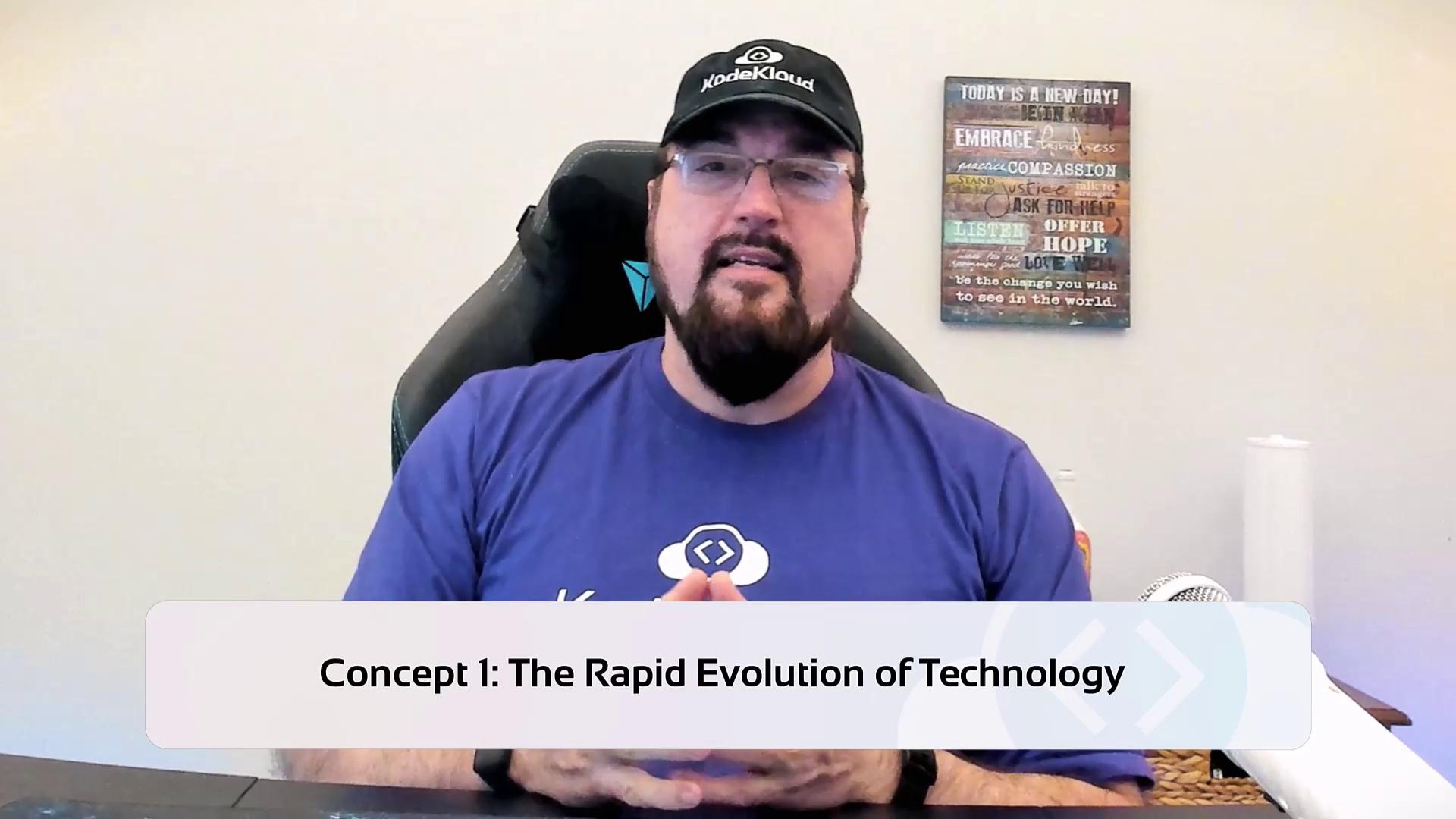Enhancing Soft Skills for DevOps Engineers: Essential Non-Technical Skills to Thrive
Growing Learning and Adapting to Change
DevOps Story What to learn when there is too much to know
Welcome to this lesson for Microsoft Skills students. I’m Michael Forrester. In today’s fast-paced IT world, knowing where to begin—and how to stay focused—is half the battle. Let’s break down a practical approach to turn that overwhelming “too much to learn” feeling into a clear, achievable DevOps roadmap.
The Pace of Technological Evolution

From bare-metal servers and virtual machines to multi-cloud deployments, containerization, and AI-driven automation, IT evolves at breakneck speed. Today’s DevOps engineers juggle databases, real-time streaming platforms, multiple operating systems, cloud providers (AWS, Azure, GCP), containers, VMs, networking, security, monitoring—and more.
Note
Embracing continuous learning is essential. Automation and AI will only accelerate change, so building a structured learning path helps you stay ahead.
How to Focus Your Learning
With countless tools and platforms, it’s easy to spread yourself too thin. Concentrate your efforts using these three guiding principles:
| Principle | Focus Area | Actionable Tip |
|---|---|---|
| Align with Your Current Role | Project-specific tools | Master the CI/CD or orchestration platform your team already uses |
| Build Skills Incrementally | Fundamentals → Advanced | Start simple, practice daily tasks, then layer on complexity |
| Stay Strategic About Your Future | Career aspirations | Follow an 80/20 split: 80% on current job needs, 20% on long-term goals |
1. Align with Your Current Role
Identify the tools and platforms your team relies on, and dive deep:
- If you’re using GitLab for CI/CD, become proficient with GitLab Pipelines.
- When deploying to Kubernetes, focus on core objects—pods, services, deployments—before exploring advanced topics like service meshes or custom admission controllers.
- For cloud environments, choose the primary provider (AWS, Azure, or GCP) and learn its core services first.
2. Build Skills Incrementally
You don’t need to master everything at once. Follow a step-by-step approach:
- Learn the fundamentals through tutorials or official docs.
- Practice basic tasks in a sandbox or personal project.
- Introduce one new concept at a time (networking, storage, security).
- Layer on advanced topics—monitoring, autoscaling, GitOps—once you feel confident.
3. Stay Strategic About Your Future
Reserve ~20% of your learning bandwidth for aspirational skills:
- Specializing in security? Start with hardening Linux servers, then integrate security scanning into your CI/CD pipelines.
- Pursuing data engineering? Learn streaming platforms (Kafka, Kinesis) and build data pipelines alongside your daily tasks.
- Eyeing cloud architecture? Explore multi-region deployments, Infrastructure as Code with Terraform, and cost-optimization best practices.
Conclusion
In DevOps, change is the only constant. By honing in on what matters today, learning in manageable increments, and keeping an eye on tomorrow’s goals, you’ll build a durable, future-proof skill set. Don’t chase every new buzzword—focus on alignment, progression, and strategy.
Thanks for following this lesson. I’m Michael Forrester—see you in the next session!
Further Reading
Watch Video
Watch video content